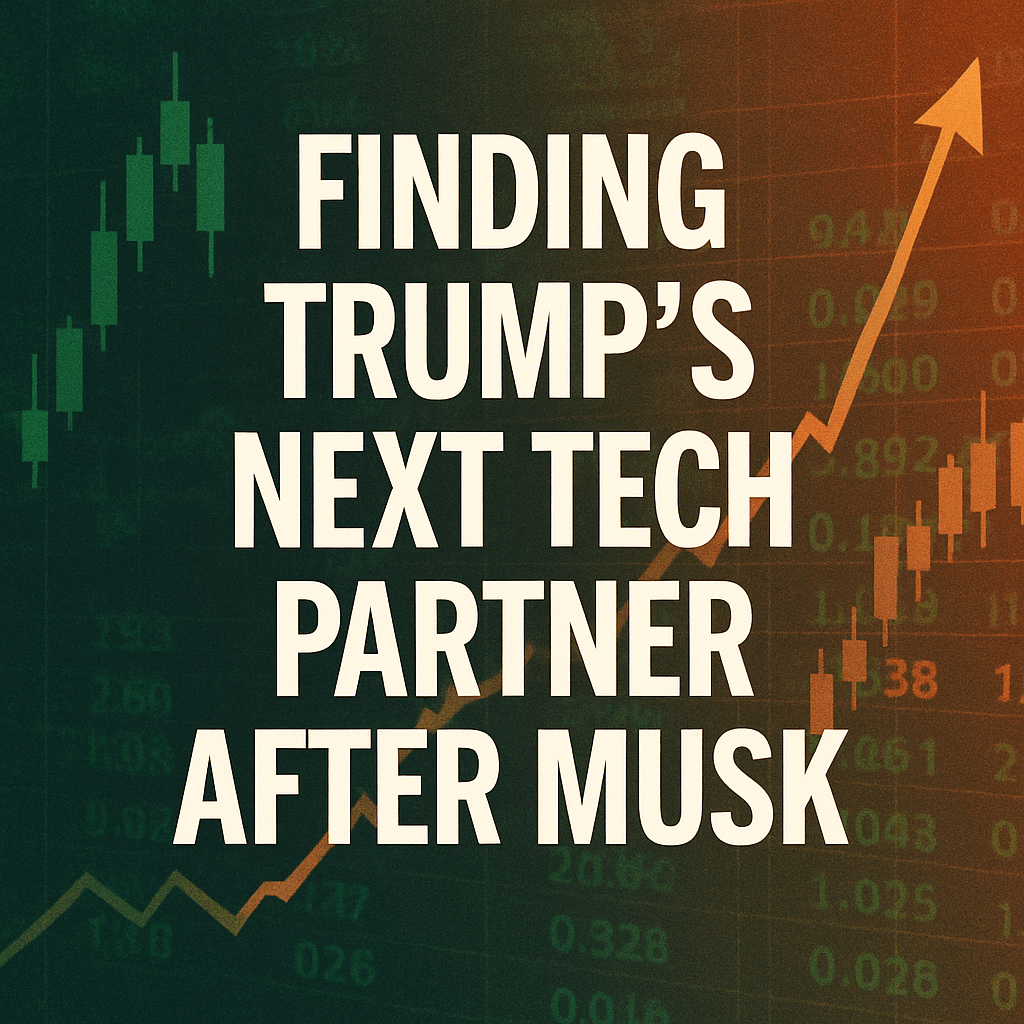Finding Trump’s Next Tech Partner After Musk

After nearly ten months of mutual support and significant financial investments in campaign contributions, the alliance between former President Donald Trump and tech entrepreneur Elon Musk appears to be definitively over. This public fallout followed a heated exchange on social media, leaving observers to question the implications for both parties involved.
As the drama continues to unfold, a critical question emerges: who will step in to fill the void left by Musk as Trump’s next tech industry ally? Given Trump’s history of engaging with influential figures in the tech sector, it is reasonable to expect another billionaire entrepreneur will pursue that position, recognizing the substantial benefits of proximity to power.
Top Contenders to Become Trump’s New Tech Partner
While the current landscape remains fluid, several key figures from the tech industry stand out as potential candidates:
Sam Altman
Sam Altman, the 40-year-old co-founder and CEO of OpenAI, emerges as a strong contender. His leadership role in pioneering large language models positions him at the forefront of artificial intelligence development, which is rapidly reshaping industries and regulatory landscapes. OpenAI’s advancements are also prompting debates around ethics, privacy, and labor markets, potentially making Altman an essential figure for government discussions on tech regulation.
Altman recently announced a venture to create a series of AI data centers through the ambitious Stargate project, emphasizing scalable, sustainable AI solutions. Trump was present at the groundbreaking announcement, potentially indicating a warming relationship between the two. Reports suggest Musk has viewed this partnership with skepticism due to competitive interests, given his own AI initiatives.
Mark Zuckerberg
Despite a fraught history, Meta CEO Mark Zuckerberg has been actively courting Trump since their past conflicts over content moderation and the January 6 Capitol riot. Following the fallout, Zuckerberg made overtures towards reconciliation, including a substantial $1 million donation to Trump’s inauguration. The two men share a complex dynamic, with Trump favorably acknowledging Zuckerberg’s past efforts to prioritize American tech at a recent Meta earnings call.
However, Zuckerberg’s leadership faces challenges. Meta is currently defending itself against a government antitrust lawsuit aimed at potentially dismantling the company, heightening the stakes for future collaborations with the Trump administration.
Jeff Bezos
Another prominent figure vying for Trump’s favor is Jeff Bezos, Amazon’s founder. With a history of contentious exchanges between Bezos and Trump—highlighted by Trump’s frequent critiques of the Washington Post, owned by Bezos—this relationship is ripe for a reset. After visiting Mar-a-Lago and supporting Trump’s inauguration again, Bezos aims to leverage this alliance to protect Amazon’s diverse business interests, spanning retail, cloud computing, and grocery.
Moreover, Bezos’ Blue Origin competes directly with Musk’s SpaceX, and his efforts with Project Kuiper aim to provide satellite internet services, giving both Bezos and Trump mutual incentives to negotiate on key policy issues.
Tim Cook
Once thought to be a close ally to the Trump administration, Apple CEO Tim Cook now faces greater scrutiny. Cook previously successfully navigated Apple’s tariff challenges but finds his standing precarious amid new tariffs and regulatory concerns. Trump’s previous comments signaling potential tariffs on Apple products based on the company’s overseas manufacturing strategy showcased a cooling relationship.
If Cook can re-establish his rapport with Trump, particularly around manufacturing in the U.S., he may seize the opportunity to play a vital role in the administration, making significant inroads in tech policy, trade, and tariffs.
Strategic Considerations for Future Alliances
The dynamics of Trump’s relationships with tech leaders can be influenced by several factors, including:
- Regulatory Influence: As tech regulation becomes more pronounced globally, access to power can dictate compliance frameworks and potential government funding for tech projects.
- Geopolitical Context: The U.S.-China tech rivalry will likely shape relationships, particularly for companies like Apple and Amazon that have significant overseas operations.
- Public Perception: How these leaders are perceived by the public and their stakeholders can play a crucial role in how they engage with Trump’s administration.
Conclusion
As the landscape shifts post-Musk, the tech moguls mentioned above have varying degrees of motivation to align with Trump. The outcome of such alliances may have profound implications for technology policy, fiscal strategies, and regulatory approaches going forward.